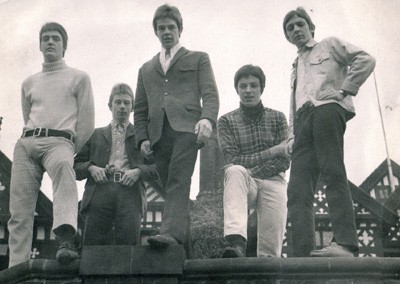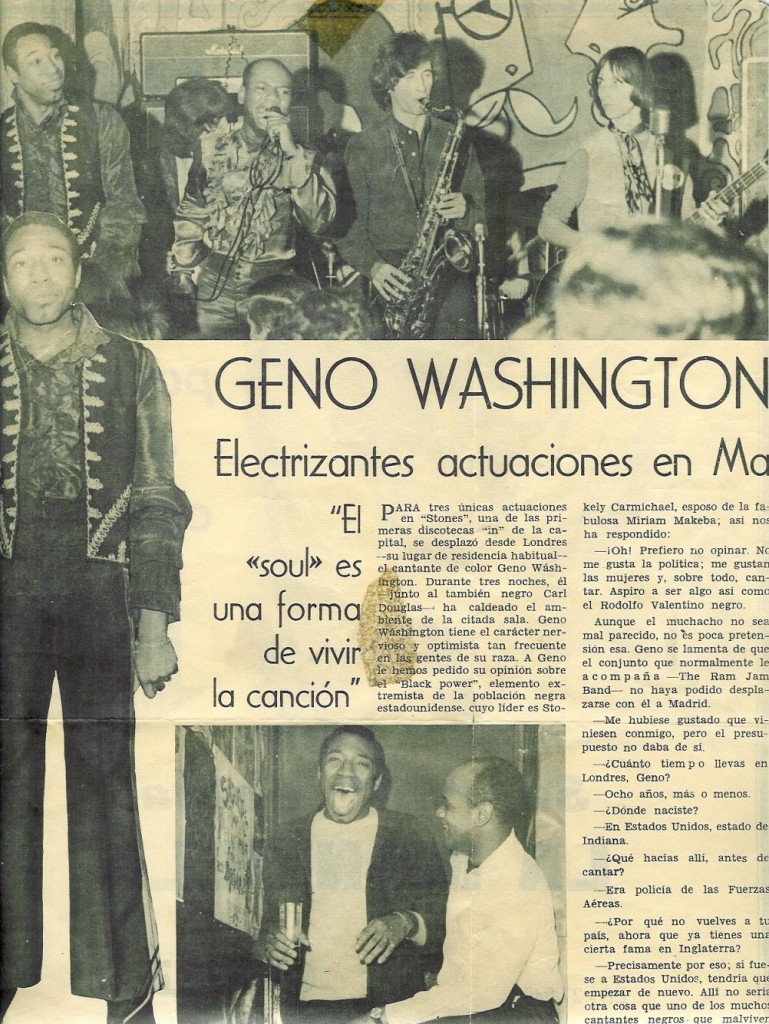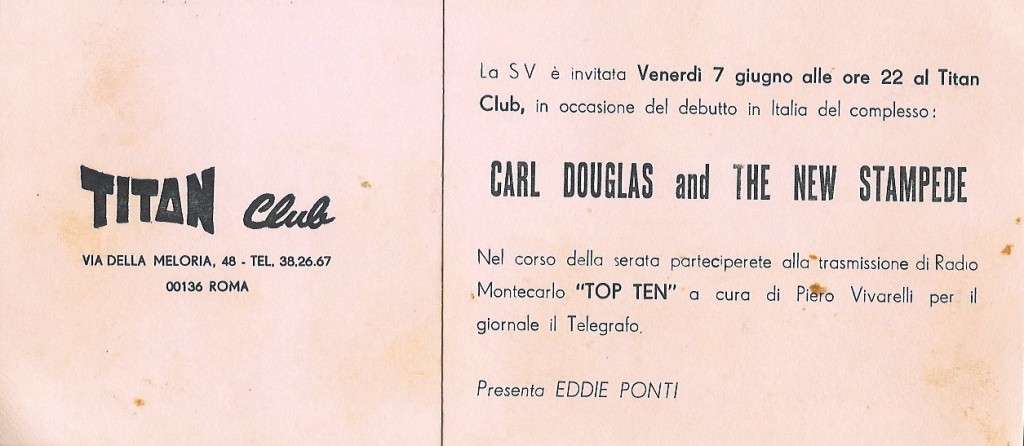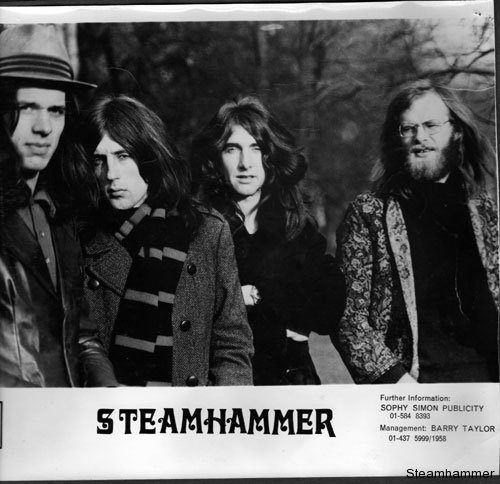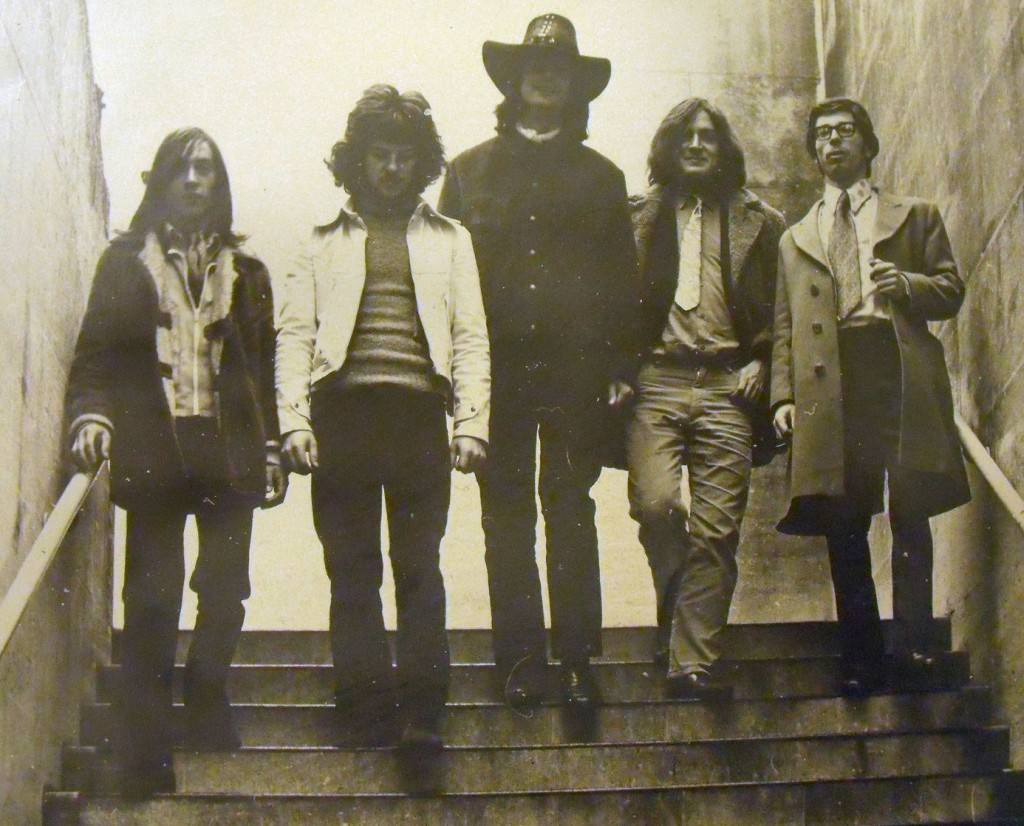By Nick Warburton
Forty years ago this summer, Pye Records issued Carl Douglas’s disco anthem “Kung Fu Fighting” to an unsuspecting public. Shipped just as the chopsocky film craze was taking hold, the Jamaican singer’s best known recording initially struggled for airplay. However, by the tail end of 1974, the single had stormed to the top of the UK and US charts, eventually selling over 11 million copies worldwide.
To mark the 40th anniversary of his global chart topper, Carl Douglas is preparing a new CD, for release this September, his first collection of new material since 2008’s Return of the Fighter, which includes a re-recording of “Kung Fu Fighting”.
The long awaited release follows hot on the heels of a superb new compilation LP from revered collectors’ label Acid Jazz, issued on 30 June. Pulling together much of Carl Douglas’s recorded work during the mid-late 1960s, including a number of previously unreleased tracks, the album finally throws a light on the singer’s little known, formative years. Nick Warburton concludes the story of Carl Douglas’s rise to fame.
By early September 1967, Carl Douglas & The Big Stampede needed a complete rebuild. Over the past few months, most of the band had departed leaving long-standing bass player Tony Webb, sax player Mel Wayne and recent recruit, lead guitarist Martin Pugh.
Manager Ken Baxter started to put together a new line up immediately, adding Kilburn-based drummer Dave Richards via the music press as a permanent replacement for Del Coverley.
A few weeks later, Baxter also auditioned several organ players at the Ram Jam in Brixton, including Mick Fletcher, Mel Wayne’s former mate from Hamilton & The Hamilton Movement.
However, on 17 September, the position was given to northerner Rod Mayall, who turned up (on his 21st birthday) for an audition after his half-brother John Mayall had put a good word in for him.
A veteran of Middleton, Greater Manchester band Ivans Meads (another Rik Gunnell Agency signing), Mayall added a unique touch to The Big Stampede, explains Baxter.
Ivan’s Meads, 1965 from Manchester District Music Archive
“He was a very talented Hammond organist, who brought not only professionalism to our band but also boyish good looks. For the fans, he was shy and never pushed himself forward because he was not comfortable with the obvious charisma and stage presence he had.”
Formed in 1963, Ivans Meads had issued a brace of classic Mod singles with Mayall’s Hammond to the fore, kicking off with a cover of P F Sloan’s “The Sins of the Family” c/w bass player Keith Lawless’s “A Little Sympathy”.
This was followed by a second, and final, single, Toni Wine and Carole Bayer’s “We’ll Talk about It Tomorrow” c/w band composition, “Bottle”, issued in September 1966. Having cut a final, unreleased track, “Sitting on Top of the World” with John Mayall producing, the band shortened its name to The Mead and spent a brief period in Germany.
Rod Mayall remembers his Big Stampede debut well – the Shanklin Beat Cruise around Portsmouth Harbour on 20 September.
While the new members were settling in, producer Pierre Tubbs was poached by the United Artist’s label. With greater clout than the smaller Go Records, Carl Douglas was offered a two single recording deal.
With the new line up still finding its feet so to speak, session musicians were employed for a recording session on 21 September to cut the first single – “Nobody Cries” c/w “Serving a Sentence”. Released on 16 February 1968, and credited to Carl Douglas, the single failed to chart, despite great vocal performance.
Back on the road in late September 1967, Carl Douglas & The Big Stampede resumed the heavy gig schedule, performing regularly at the Bag O’ Nails and even returning to Sibylla’s, the club that they’d played in August 1966.
However, the band’s line up remained unsettled. In early December, The Big Stampede’s most longstanding member, Tony Webb handed in his notice on the eve of another foreign trip.
Tony Dangerfield, a one-time member of Screaming Lord Sutch’s Savages, and more recently part of Rupert’s People, assumed the bass position (albeit it until spring 1968 when Webb agreed to return).
Within weeks, Mel Wayne also bailed out (but not before posing for some promotional shots with Ken Baxter filling in for Webb) to spend more time with his newly married French wife.
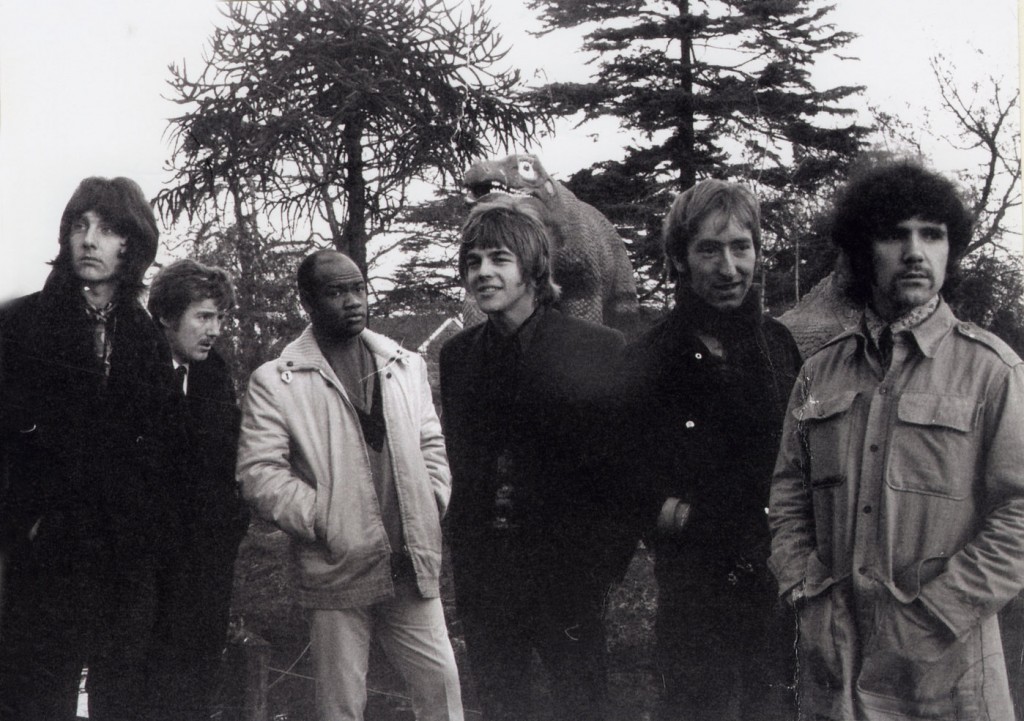 Carl Douglas & The Big Stampede, November 1967, left to right: Martin Pugh, Ken Baxter (filling in for Tony Webb), Carl Douglas, Rod Mayall, Mel Wayne and Dave Richards
Carl Douglas & The Big Stampede, November 1967, left to right: Martin Pugh, Ken Baxter (filling in for Tony Webb), Carl Douglas, Rod Mayall, Mel Wayne and Dave Richards
“Every time we were to go abroad, there was some member of the band who couldn’t or wouldn’t want to go, so we’d have to quickly rehearse and put somebody in,” says Douglas on the revolving door of changing personnel.
While Wayne would briefly abandon a career in music, he would resurface over a year later with Calum Bryce. He currently performs with The All Night Workers, the band that had shared the bill with Carl Douglas & The Big Stampede at Dunstable’s California Ballroom in July that year.
In an incredible turn of events, his predecessor, Dave Brooks landed the job of replacing him for a tour of southern France, taking in Biarritz and Perpignan. By then, Brooks had moved away from rock music circles, having rehearsed with a jazz orchestra in Brick Lane and spent the summer playing with the house band at Pontins’ holidays in Brixham, Devon.
“I re-joined when the band went to Biarritz,” he recalls. “I got a train down from London. I think I went to the Rik Gunnell office… and [the agency] sent me off. I got a train that day to Biarritz.”
On his arrival in the French town, Brooks discovered that the group had undergone a complete make-over since his departure back in April 1967. Other than Carl Douglas, he didn’t know any of the other musicians.
With money tight and Tony Dangerfield keen to put his personal stamp on the band, Brooks says that only the group’s front man seemed keen to welcome him into the fold. The sax player had to work hard to be accepted.
“Carl Douglas wanted me on sax but they didn’t want a sax player and Tony Dangerfield kind of engineered this barrier to me,” remembers Brooks.
“Carl wanted me because it made it into a soul band. With Tony Dangerfield, it was turning kind of into a rock ‘n’ roll revue… He was all right [but] he was a bit of a showman.”
The overseas trip had been hastily arranged and Douglas remembers that the group hadn’t had time to repair a broken key on Rod Mayall’s organ.
“I had taught him to do this thing that I saw the late great Billy Preston do [keyboard effect that screams through the Leslie speaker]. I said, ‘I want you to start doing this… I’ve seen Billy Preston do it’. He did it and cut his finger and instead of moving it, he kept looking at his finger like this and the blood’s dripping on the keyboards.”
Back in the UK, the musicians continued to intersperse London gigs with treks into the Home Counties and further afield, including Alex’s Disco in Salisbury and the Clouds Club in Derby. The Rik Gunnell Agency lined up plenty of bookings but thanks to other contacts, Baxter also landed some important engagements overseas.
On 29 April 1968, Carl Douglas & The Big Stampede (with Tony Webb back in the fold) drove down through France to Spain to play at the Stones Club in Madrid for 31 nights where they were joined towards the end of the engagement by singer Geno Washington minus his Ram Jam Band.
Carl Douglas & The Big Stampede with Geno Washington, Madrid, April 1968
Dave Brooks and Rod Mayall remember Manchester United footballers Bobby Charlton and George Best coming into the club one night with their team mates and joining the musicians on stage. Manchester United played Real Madrid on 15 May in the second leg of the semi-final of the European Cup.
For Rod Mayall, the Spanish excursion would ultimately lead to his departure; the keyboard player returned to Spain later that summer to work with a Spanish/Portuguese outfit called Los Buenos, whose entire recorded output is available on CD from Spanish label, Rama Lama Music.
https://www.youtube.com/watch?v=yoEXHfXakLo
“[Los Buenos] had four singles that got in the [Spanish] top 20 and then I joined up with a South American band called The Pipe (La Pipa), who’d already had successes in other countries, mainly South America,” says Mayall.
“We were over there [in Spain] and another band wanted me and also him [Rod Mayall] to join them,” adds Webb. “But I was going to come back and get married and I kept my promise. Rod stayed over there.”
Before this happened, however, the musicians left Madrid and drove all the way to Rome to perform at the Titan Club for 15 nights, kicking off on 7 June.
Carl Douglas and The Big/New Stampede, The Titan Club Poster, June 1968
With the gigs honoured, Mayall returned to Spain and hooked up with Los Buenos. He then joined a South American outfit called La Pipa to back Venezuelan singer Henry Stephen, who’d already enjoyed two gold records back home, including “El Limon El Limonero”. La Pipa recorded a lone Spanish single for RCA in early 1970 – “Your Daddy Won’t Do It” c/w “Take Him Back”.
While the band was playing in Italy, United Artists released the group’s final single – “Sell My Soul to The Devil”, coupled with “Good Hard Worker”, arguably one of Carl Douglas’s finest efforts on disc. Credited to Tubbs/Douglas, the two tracks were, in fact, entirely written by the singer.
“The only two recordings that we all played on live is the new Stampede,” says Webb. “‘Good Hard Worker’ is my favourite. I know that I am playing bass on it but I really like the song. I think we done that about three o’clock in the bloody morning and then we went off to Spain. That’s totally live [that track]. We were only allowed one take and then they overdubbed the strings on that.”
Issued on 28 June 1968 and credited to Carl Douglas & The Big Stampede, the single should have been the group’s long overdue breakthrough.
However, despite the single’s great potential, any progress on the recording front was soon dashed when Rik Gunnell’s Agency was handed to the Robert Stigwood Organisation in July/August 1968. As Ken Baxter recalls, the band’s new employer didn’t feel that The Stampede fitted with the company’s portfolio and live work dried up.
Having resumed gigging on the London circuit that summer, and returned for another short French tour, the remaining members honoured two final gigs at the Black Swan in Sheffield on 15 September and the Stax Club in Cirencester on 30 September and then went their separate ways.
Looking back on his time with the band, Dave Brooks has this to say: “The second line up was much racier. It was a rock/blues band, playing Carl’s numbers. We used to stretch out to long solos. It was better musically. It was a much better group [than the first incarnation] but it still wasn’t what Carl wanted. He wanted a tight soul band, which he never got.”
While most of the musicians would retire from the music scene, several members went on to notable acts soon after.
Martin Pugh immediately landed on his feet and joined Worthing blues-rock band Steamhammer in late 1968. The group’s eponymous debut yielded a minor European hit, “Junior’s Wailing”, and was followed by three more albums before disbanding. During his time with Steamhammer, Pugh also guested on Rod Stewart’s debut solo album alongside fellow band member Martin Quittenton.
Steamhammer Publicity Shot from steamhammer.com
In 1975, the guitarist joined former Yardbirds/Renaissance singer Keith Relf’s band, Armageddon whose lone album received favourable reviews. He currently resides in the United States where he works as a solo artist.
After nearly two years in Spain, Rod Mayall returned to the UK and joined his half-brother John to back former Fleetwood Mac guitarist Peter Green at the Bath Festival of Blues & Progressive Music in June 1970.
The keyboard player also worked with future Genesis drummer/singer Phil Collins in Flaming Youth.
“The band was getting a fiver a week from the management,” recalls Mayall. “They paid me a tenner because I was living in a flat and they were living with their parents. Then Phil got offered a job with Genesis for fifteen quid a week, which he took.”
After a one-off gig with Phil Collins and Dave Brooks in Cornwall, Rod Mayall moved into session work. He contributed celeste to Thin Lizzy’s “Dublin”, a track on the E.P. “New Day” and also appeared on a recording by Iain Matthews. He currently lives in Macclesfield and continues to play and record.
Tony Webb also kept his hand in, albeit it briefly, and worked with a south London band whose name he has long forgotten. The group recorded some early Pink Floyd tracks before disbanding. Webb later moved to the West Country where he gigged with a succession of local outfits before opening a music shop and a recording studio.
Tony Webb’s post-Stampede band, 1969
While Dave Richards appears to have vanished off the face of the earth (Dave Brooks says he later joined the Gas Board), the sax player threw himself into touring and session work, spending six weeks backing American soul band The Vibrations after making a cameo appearance on George Harrison’s Wonderwall album.
“A lot of musicians didn’t read music but if you did like I did it was good,” says Brooks. “You could just play it straight away. Time is money.”
In mid-1970, the sax player undertook some sessions with Manfred Mann Chapter 3 and then participated in the band’s US tour. Throughout the early to late 1970s, Brooks kept incredibly busy, playing with a myriad of artists, including Flaming Youth (after Rod Mayall’s departure), The Greatest Show on Earth, Kokamo and Graham Bond (he was playing with the keyboardist’s band when he died).
Brooks also made a habit of popping up on recordings by artists as diverse as Patto, Vinegar Joe, Jo Anne Kelly, Screaming Lord Sutch and Joan Armatrading.
After working with Jools Holland on the alternative comedy circuit and Buddy Bounds among others, Brooks embraced his Scottish heritage and eschewed the sax for bagpipes. His mother played the instrument and Brooks was keen to play music from the British Isles.
In a case that the BBC reported on, the former Stampede member was taken to court by the Corporation of London for playing a musical instrument (a charge contested in court) on Hampstead Heath in 1996.
Using the alias Silly Boy Lemon, he continues to play on the heath under controlled conditions dictated in the court case and in 2001 released a CD, Piper on the heath.
“At the time we didn’t know that it was a golden era,” says Brooks looking back on The Big Stampede years. “To us it was just the now. We had no comprehension that it was the time.”
The ever loyal Ken Baxter remained firm friends with Carl Douglas. “I was able to negotiate a new contract for him with a businessman from Majorca, Spain [called] Peter Newman, who engaged Carl to front his Spanish band,” says Baxter.
An international group that drew together musicians from Argentina, Colombia, France, Spain and Morocco, alongside British expats (and Links members) Tony Ellis (guitar); Ronald Simmonds (bass) and Danny Evans (drums), Carl Douglas & The Explosion spent the best part of 1969-1970 touring Spain, France, Italy and Portugal.
The multi-national outfit also cut two rare Spanish-only singles for Polydor – Ross Bloodhall-Brown’s “Eeny Meeny” c/w Barry Despenza and Carl Wolfolk’s “Can I Change My Mind” and Ronald Simmonds’ “Beggar For Your Loving” c/w Eddie Floyd and Steve Cropper’s “Knock On Wood” (credited to just The Explosion) during 1969 before folding the following year.
Back in London, Carl Douglas’s next move was to sign up with another promising, yet commercially unsuccessful, outfit, Gonzales, which he joined in June 1971. Over the next two years, Douglas gigged with the band, opening for soul legend Curtis Mayfield on one occasion, but abandoned Gonzales in 1973 to pursue a solo career that took him into the stratosphere.
Three years after Carl Douglas had hit payday with “Kung Fu Fighting”, the singer remembers playing in Montreux, Switzerland when he unexpectedly ran into his old employer Rik Gunnell, who was putting a surprise party on for him at his club, The Londoner.
“He gave me a hug and said, ‘Why didn’t you do this [become a megastar] when you were with us?’ I said, ‘Because you never supported me,’ laughs Douglas.
“You supported Georgie Fame, you supported Zoot Money, you supported Long John Baldry… you supported John Mayall, whose brother we took’. He said, ‘Shit, Carl… I remember when your old manager Ken Baxter was asking for more money. He said, ‘he’s worth it, he’s worth it’… I wish I’d bloody listened to him. You’ve gone from £10 a night to £100,000 a night. You’re having a laugh, ain’t you?’”
The Big Reunion! 20 November 2013, Left to right: manager Ken Baxter, Chris Baxter, drummer Nick Baxter, Carl Douglas, sax player Mel Wayne, drummer Del Coverley and bass player Tony Webb
Copyright © Nick Warburton, 2014. All Rights Reserved. No part of this article may be reproduced or transmitted in any form or by any means, without prior permission from the author.
To contact the author, email: Warchive@aol.com
Many people helped piece this story together. My personal thanks go to Carl Douglas, Tony Webb, Ken Baxter, Dave Brooks, Mel Wayne and Rod Mayall. Thanks to Ken Baxter and Tony Webb for the use of band photos.
